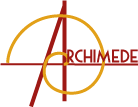Abstract
Title:Body, clothes, gestures, speeches and smells : about rituals
The set of papers that we propose focuses on all the agents that allow a good performance of rituals in Greek, Etruscan and Roman Antiquity. It analyses the role played by the body, the ornaments, the gestures and the instruments, the speeches and the “good” smells in the ritual performances to please the gods or to be integrated into a given society. It starts to look at the ornaments of the gods before considering the role played by “good” smells, provided in particular by the burning of incense; then it is the speaking in the rituals and the gestures that accompany them that are considered. The following contributions concern the clothing, ornaments and treatments of the body in a ritual context with first the question of the adornment of priests and the faithful, then that of the management of the body and clothing in two rites of passage (birth and mourning), finally the interplay between nudity, clothing and cross-dressing. The proposed set of papers does not claim to be exhaustive, but testifies to the importance of taking into account bodily and clothing performances, the use of words and smells, in precise rituals and in given space-times.
Keywords: Ritual, performance, agents, body, clothes, gestures, speeches, smells, Greece, Etruria, Rome.




